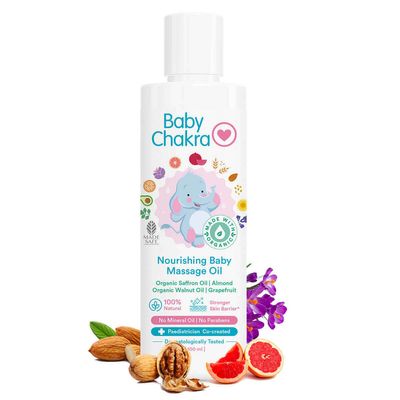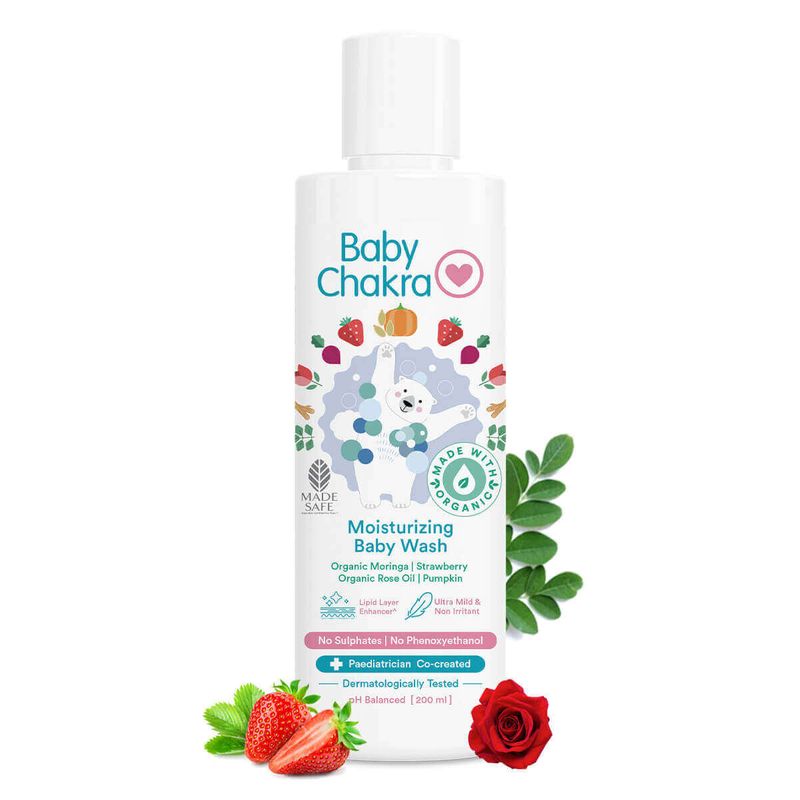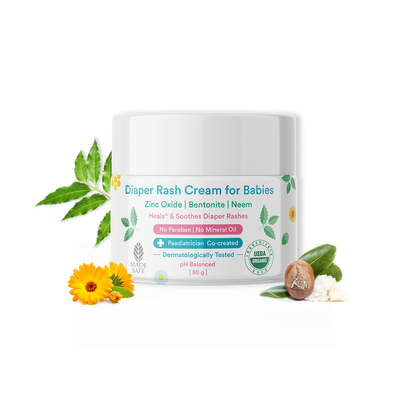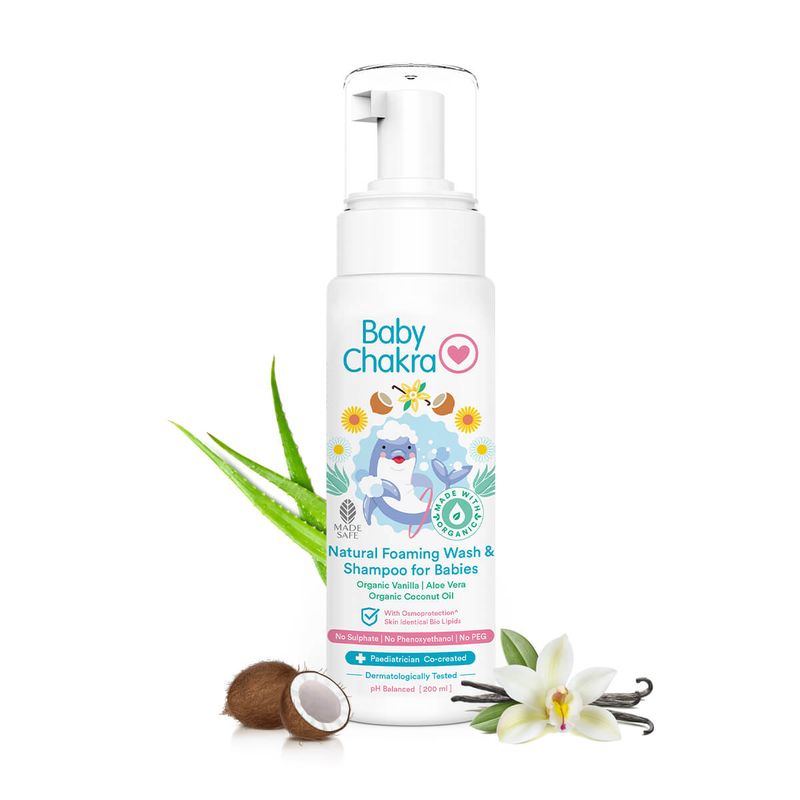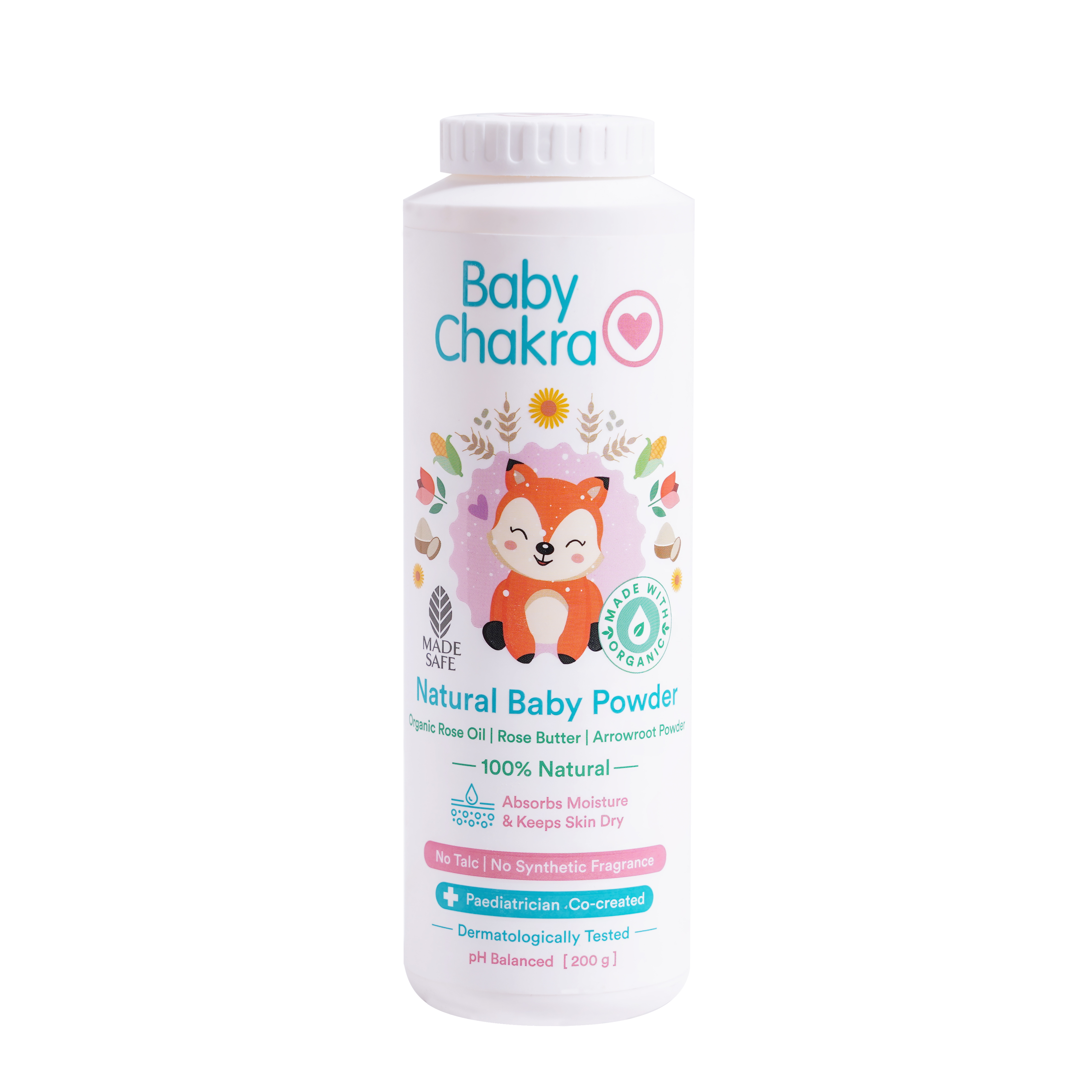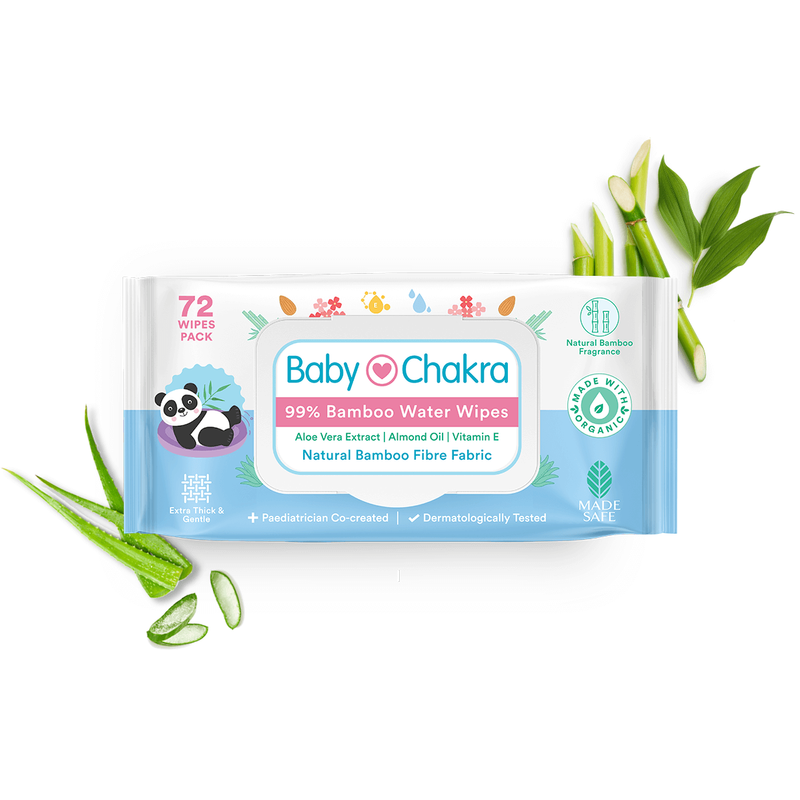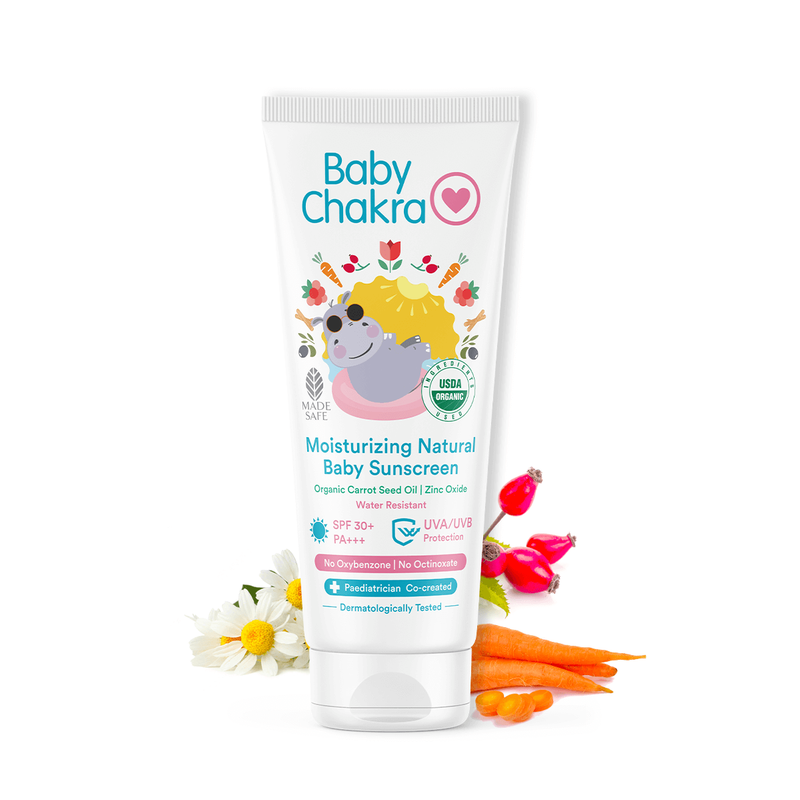
5 Must-Have Natural Ingredients For A Baby’s Skin
25 Aug 2022 | 4 min Read
Sayani Basu
Author | 607 Articles
Choosing the right baby products with safe ingredients is a real concern for parents. As the baby’s immune system continues to develop, there are chances that dry skin, eczema, and diaper rash make an appearance. Plus, a baby’s skin is thinner than an adult’s. That is why only those skincare products should be used for the little ones that are formulated with organic ingredients.
Now the question is, which natural ingredients should you look for in a baby’s product? Here are some of the must-have natural ingredients for a baby’s skin.
5 Natural Ingredients You Should Look For In A Baby’s Skincare Products
- Moringa oil: Moringa is known for its miraculous healing and nourishing qualities. Moringa oil is extracted from the seeds of the moringa tree and has a high oil content and contains several nutritional compounds, including monounsaturated fats, protein, sterols, and tocopherols. Therefore, opting for a massage oil containing moringa oil will have a host of benefits for the little one.
Moringa oil hydrates, moisturises, and deeply nourishes your baby’s skin. It softens your baby’s skin and adds a natural glow. Hence, a baby wash enriched with the goodness of moringa oil will treat the little one’s skin and prevent dry skin conditions.
- Calendula oil: Made by infusing marigold flowers in a carrier oil, calendula oil is an active ingredient in a baby’s diaper rash cream. Calendula oil is enriched with antiviral, antimicrobial, and anti-inflammatory properties and treats wounds, inflammation, and irritation, preventing harmful bacteria from residing in the little one’s skin.
Therefore, a diaper rash cream with the goodness of calendula oil will soothe the rashes and reduce redness.
In addition to this, calendula extracts are also used in making foaming washes for babies and toddlers. Its anti-inflammatory properties help in soothing eczema, a common complaint in babies and toddlers.
- Shea butter: Shea butter has high moisturising properties and helps treat rashes and insect bites too. An excellent natural emollient, it keeps your baby’s skin hydrated, smooth and soft. Containing vitamin E and anti-inflammatory properties, it also prevents the inflammation caused to the skin post UV exposure.
Therefore, a talc-free baby powder enriched with the goodness of shea butter will soothe your baby’s skin and reduce skin inflammation.
- Aloe vera: Aloe Vera has a calming effect on your little one’s skin and keeps sensitive skin hydrated and well-nourished. Plus, the soothing and healing properties of aloe vera act as a shield between your baby’s skin and the harmful enzymes that might worsen the little one’s heat rashes, skin irritation and so on.
Aloe vera is also found in a baby’s wipes that soothe, hydrate and provide relief from rashes to the little one’s ultra-sensitive skin.
- Organic almond oil: Organic almond oil is a natural source of Vitamin E and protects your baby’s skin from rashes. It also rejuvenates and hydrates the super-sensitive skin. That is why opting for a sunscreen with the goodness of organic almond oil will be a good choice.
Enriched with antioxidants, the almond oil content in your baby’s sunscreen keeps the little one’s skin hydrated during and after sun exposure.
Now that you have an idea of some of the natural ingredients for babies’ skin, we hope that choosing products for your babies becomes easier.
Cover Image Credits: pexels
A


Suggestions offered by doctors on BabyChakra are of advisory nature i.e., for educational and informational purposes only. Content posted on, created for, or compiled by BabyChakra is not intended or designed to replace your doctor's independent judgment about any symptom, condition, or the appropriateness or risks of a procedure or treatment for a given person.

